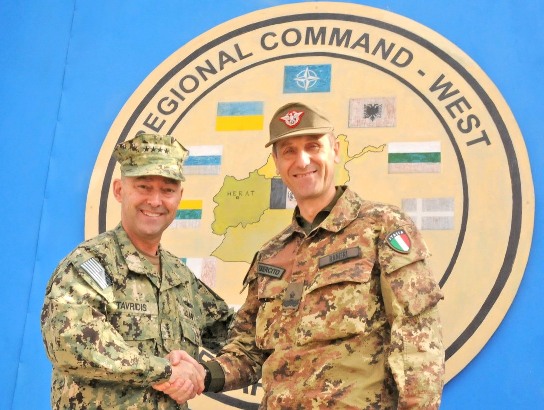
From James Stavridis, House Armed Services Committee: Today, thanks to decades of sustained leadership, tireless devotion, and ironclad commitment on both sides of the Atlantic, the United States and our historic allies enjoy an unprecedented degree of freedom, interconnectedness, economic opportunity and prosperity , and interdependence toward achieving these common goals of global security and stability. Indeed, as former Secretary of State Clinton remarked in assessing the legacy of the last century and its impact on the current one: “Today’s transatlantic community is not just a defining achievement of the century behind us. It is indispensable to the world we hope to build together in the century ahead. . . .”
Today, NATO militaries include 750 ships, 24,000 aircraft, and over three million active duty personnel. Over the past decade, as these assets were vigorously put to use, our European allies and partners made conscious national decisions to set aside the security paradigms of the previous century and stand shoulder-to-shoulder with the United States, making unprecedented deployments on out-of-area expeditionary operations to confront 21st century threats. And it remains one of history’s more ironic twists that NATO’s only Article 5 declaration was made by our NATO allies in the defense of the United States after the events of September 11, 2001.
In the decade of war and military operations that followed, European military personnel comprised 80% of non-U.S. forces in Iraq and 90% of non-U.S. forces in Afghanistan—essentially a third of the International Security Assistance Force (ISAF). In addition, our European partners provided substantial military support—in command and control, basing, air sorties, and maritime interdiction—to execute Operation UNIFIED PROTECTOR in Libya successfully in 2011. They also sustain 90% of the mission in Kosovo, provide 6,000 troops for U.N. peacekeeping operations across the world, and continue providing important support to current missile defense and counter-piracy operations. These are extraordinarily valuable contributions, both diplomatically and in terms of their relief on U.S. force generation requirements. They represent burden-sharing unparalleled in any other region of the world, showcasing the vital importance of our European allies and partners to U.S. national security interests and the viability of coalition warfare as we continue moving into the 21st century. . . .
Geographically, Europe provides the critical access and infrastructure to meet the Defense Strategic Guidance’s priorities and expand U.S. global reach across half the world, to Europe and on to Eurasia, Africa, and the Middle East. America’s enduring presence and leadership in Europe provides our nation with an indispensable geostrategic platform—a metaphorical forward-deployed “unsinkable aircraft carrier”— to facilitate and conduct global operations in direct support of NATO, six U.S. Combatant Commands (European Command, Central Command, Africa Command, Transportation Command, Special Operations Command, and Strategic Command), a wide host of U.S. Government interagency organizations, and 51 U.S. Embassies. In accordance with the 2012 Defense Strategic Guidance, our evolved but enduring presence will continue to support these missions, assure our allies, deter potential adversaries, promote enhanced capabilities and interoperability for future coalition operations, support and provide leadership for NATO’s continued progressive evolution, and provide critical forward defense against the rising threats of the 21st century.
Excerpts from testimony of Admiral James Stavridis, Commander, United States European Command, March 15, 2013. (photo: ISAF)
Image: isaf%203%2019%2013%20Stavridis%20Dario%20Ranieri.jpg
